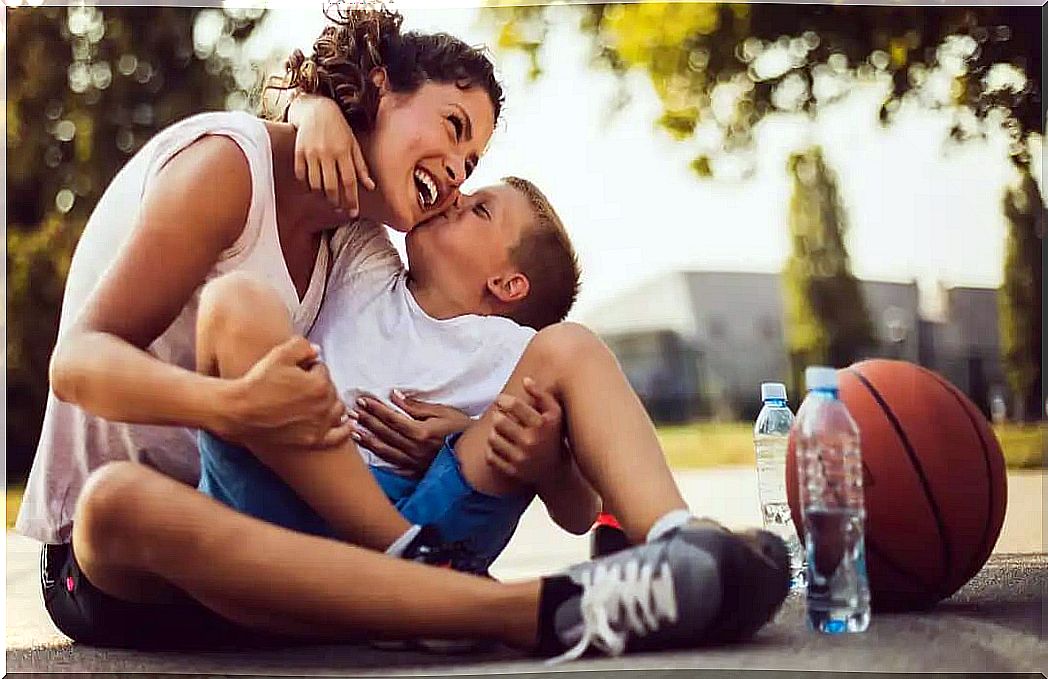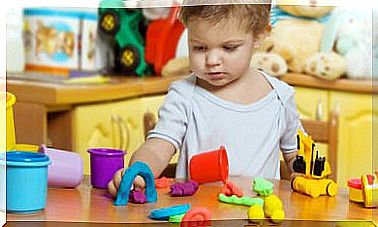5 Signs Your Child Loves You

The relationship between a mother and a child is one of the most important ones they will both experience throughout their lives. The bond between them is unique and the feelings they can develop for each other are unparalleled. However, the connection is not without challenges, obstacles and difficulties.
Conflicts and day-to-day life and fears of not acting well as a mother can generate concerns. However, your child loves you, and here are some signs that will help you identify that feeling.
Not all adults express affection in the same way, and the same goes for children. Each child has their own language of love, and while some prefer physical contact, others may choose to show affection with more subtle words, gestures, or actions. Here are some examples of how your child might be showing you how important you are to him.
Some signs that your child loves you

Want to spend time with you
Some children are more demanding and others more independent, but in any case, it’s easy to see when a child enjoys spending time together. You are her favorite playmate and she always asks for your time and attention. This can make you feel overwhelmed at times, especially when you have other tasks to do, but it’s a sure sign that your child loves you.
On the other hand, for him, his presence and company are gifts superior to any other alternative. Has your child ever preferred to stop playing to go shopping with you or to prepare dinner together? The activity doesn’t matter much if it can do to you.
he tells you secrets
Does your child feel confident to tell you everything that happens in their life? Does he talk to you about how he’s been at school, what he wants and what he’s afraid of? Does he share his concerns, ideas and thoughts with you? So don’t be in any doubt about how much he loves you or what a great job you are doing as a mother.
When a child emotionally opens up to an adult, it is because he feels unconditionally loved and accepted, because he feels protected. Your child certainly knows that even if he makes a mistake, you are his safe place.
Offer gifts for you
Children have no purchasing power, but that doesn’t stop them from giving the best gifts to their loved ones. Colorful drawings, letters, flowers picked in the park, a heart-shaped stone or a special seashell found on the beach… Little ones know better than anyone else to appreciate the value and beauty of the little things in life and don’t hesitate to share with whoever they are. most love.
Helps and cares for you, one of the signs that your child loves you
All little ones can feel lazy when it comes to helping with household chores, and even try to put it off. However, if your child helps you hang clothes, wash dishes, or cook dinner without your asking, it’s because he likes your attention and values your recognition.
Also, when you’re tired, he might make simple gestures like covering you with a blanket or giving your favorite stuffed animal. Is there a purer and more genuine demonstration of love?

Look for physical contact
Not all children use physical contact to express affection, but if this is your child’s love language, your child will likely kiss and hug you often, shake your hand in the street, or lean on your shoulder while watching a movie. Also, little ones may want to sleep with you and enjoy it immensely when you allow it. At the end of the day, being in touch with you makes them feel calm and protected.
Do you think your child loves you?
In every family there can be conflicts, arguments, or discrepancies, and this does not affect the love that its members have for each other. However, if you feel that conflicts and misunderstandings are constant and that the relationship with your child is not the most suitable one, try to find a solution.
The child may feel misunderstood, invalidated or ignored and, in the long run, actions such as screaming or punishing can cause great emotional damage to the child and damage the bond between parents and children. Pay attention to your child’s signals and try to create a trusting relationship in which you can speak honestly and respectfully about things that need improvement.









